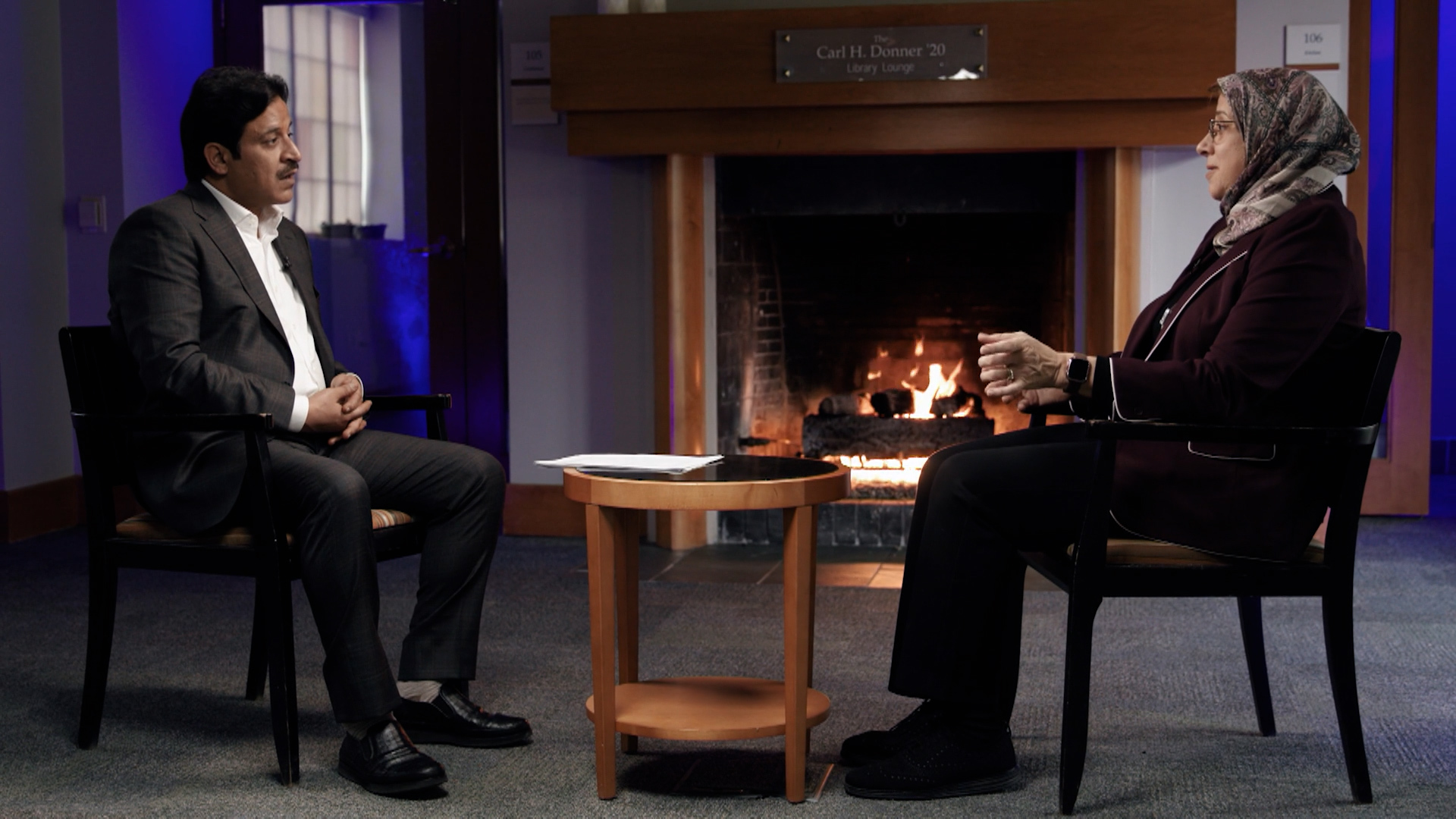Dr. Amani Jamal, dean of the School of Public and International Affairs (SPIA) at Princeton University, has overcome racist practices against Muslims in the United States and progressed in her academic career to become a distinguished academic who works to correct the stereotype of Arabs and Muslims there and defend their causes.
Dr. Amani, who was a guest on the episode (2023/8/20) of the "Interview" program, was born in San Francisco, USA, to a Palestinian immigrant family, and when she reached the age of ten, her father decided to return to the original homeland of Palestine, specifically to Ramallah, to teach his children the Islamic religion and the Arabic language, and this return allowed the child Amani to identify her roots and identity, and she became Arabic and understood it.
She says that her travel to Palestine in 1980 made her understand the situation in Palestine, especially the reality of the Israeli occupation, which oppresses Palestinians and violates children's rights, and therefore she was convinced that assistance could be provided through education and teaching.
After the outbreak of the First Intifada, Professor Amani returned with her family to the United States at the age of 18, and at the University of California, Los Angeles, she studied political science in 1993, and completed her master's and doctorate in political science in 2002 at the University of Michigan.
The Palestinian-born doctor specialized in her studies in political development and democracy in Arab countries, and her motivation in this - as she explains - is that there are concepts in the United States that "the Arab peoples do not want democracy and do not value it, and the Arab countries that suffer from terrorism and wars lack the principles and foundations that make them democratic," which are misconceptions, according to the guest of the "interview" program.
Democracy under occupation
During her academic career, Amani conducted her first study on Palestine between 1993 and 1994, and says that the West was highlighting the "new Palestinian state", elections and support for civil institutions and civil society, stressing that in her doctoral research she sought to understand whether democracy in Palestine would be achieved under occupation and in the absence of state foundations.
In the context, she stresses that Muslims and Arabs in the United States are exposed to racism more than other minorities, and there is a distortion of their image in the media, noting that racism was terrible with the arrival of former President Donald Trump to power, and his supporters were many and applauded him when he attacked Arabs and Muslims.
While describing the impact of Arab academics on American universities as very small, the dean of Princeton University's School of Public and International Affairs pointed to studies that confirm that Arab Americans are more educated than other minorities.
Professor Amani has held academic positions at Princeton University since 2003, starting with an assistant professor and then an associate professor, until she received the degree of professor in 2013, and obtained the position of dean of the School of Public and International Affairs at Princeton University two and a half years ago, after being at the university for 20 years as a professor specializing in the Middle East.
Regarding wearing the hijab, she reveals that she wore it when she was 19 years old after returning from Palestine to the United States, stressing that she is proud of her belonging to Islam and Palestine, and that she never felt that she should change her principles.

